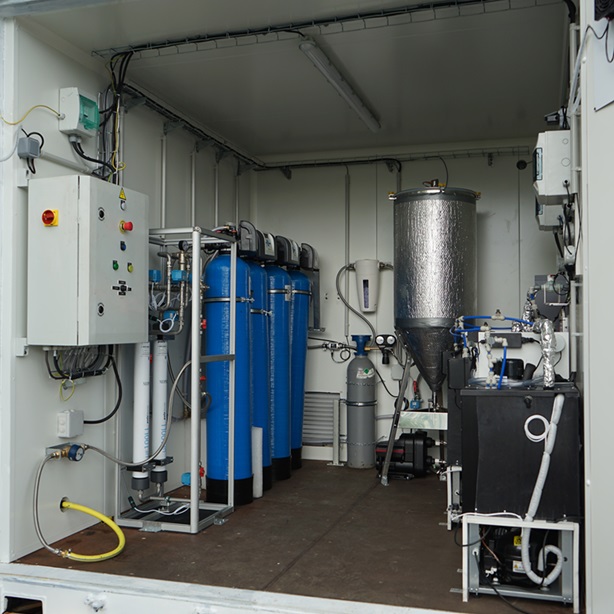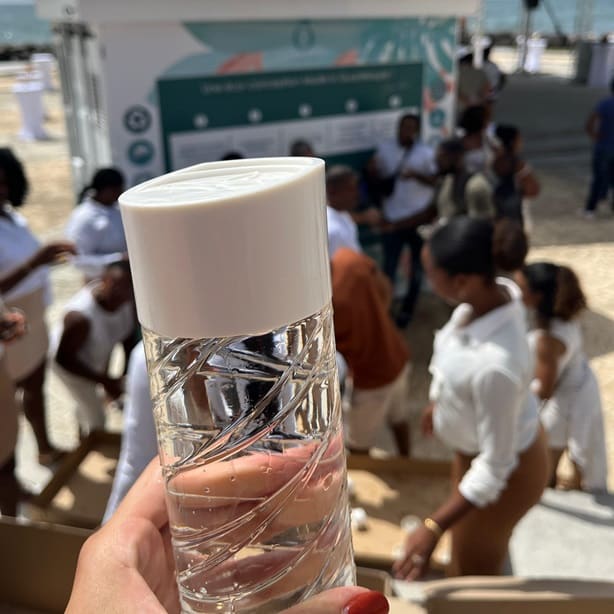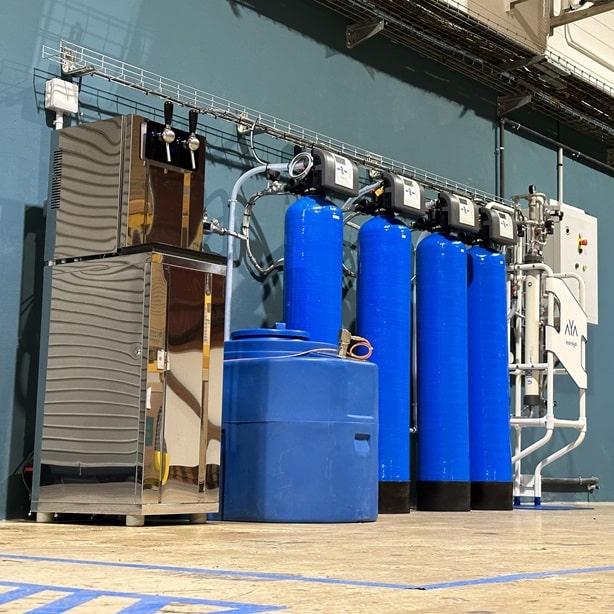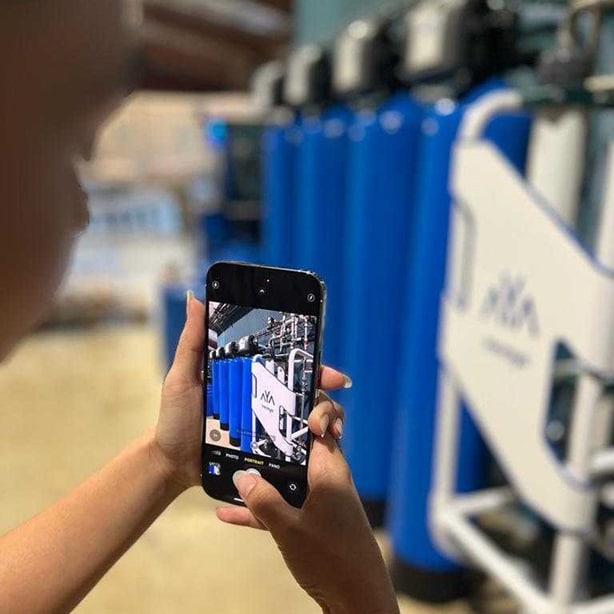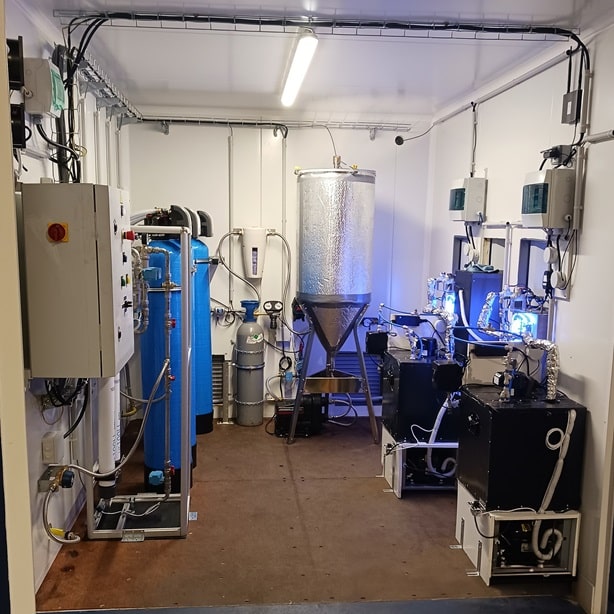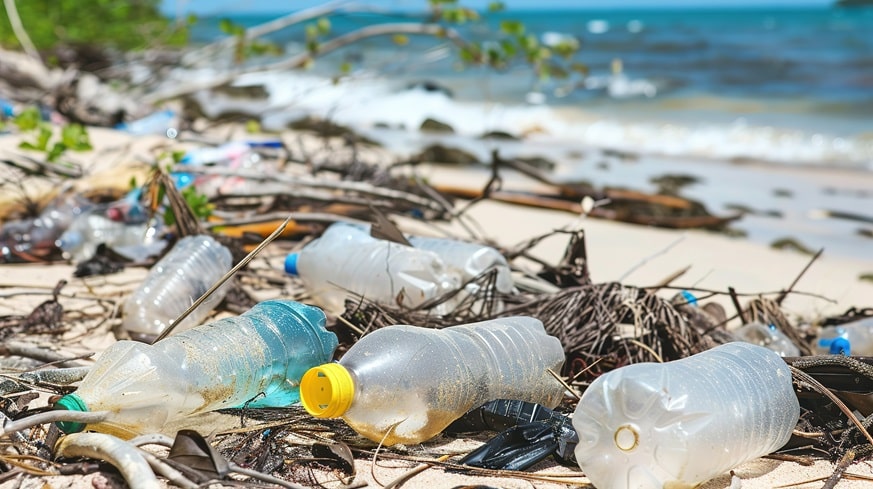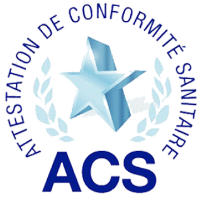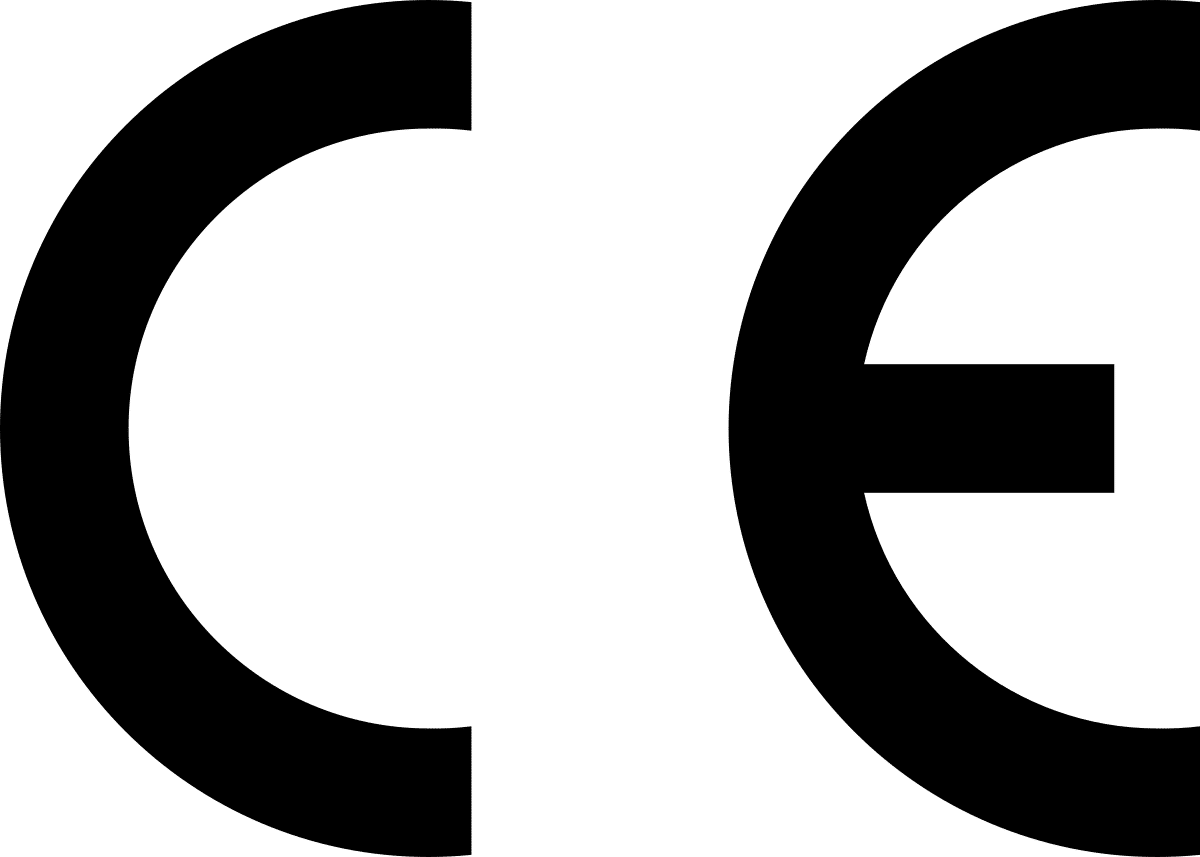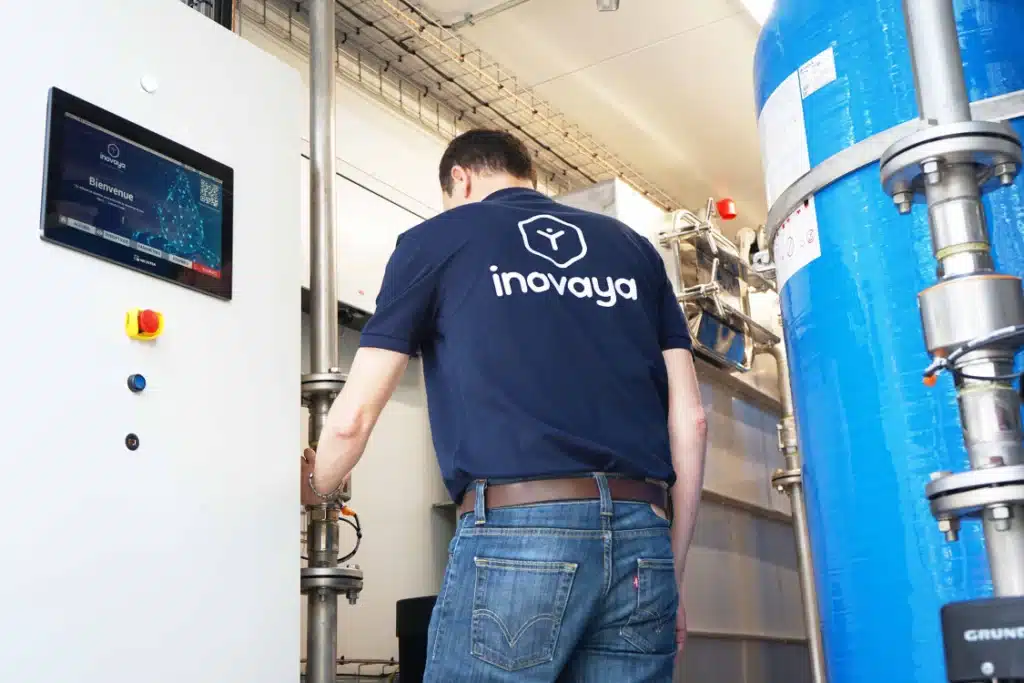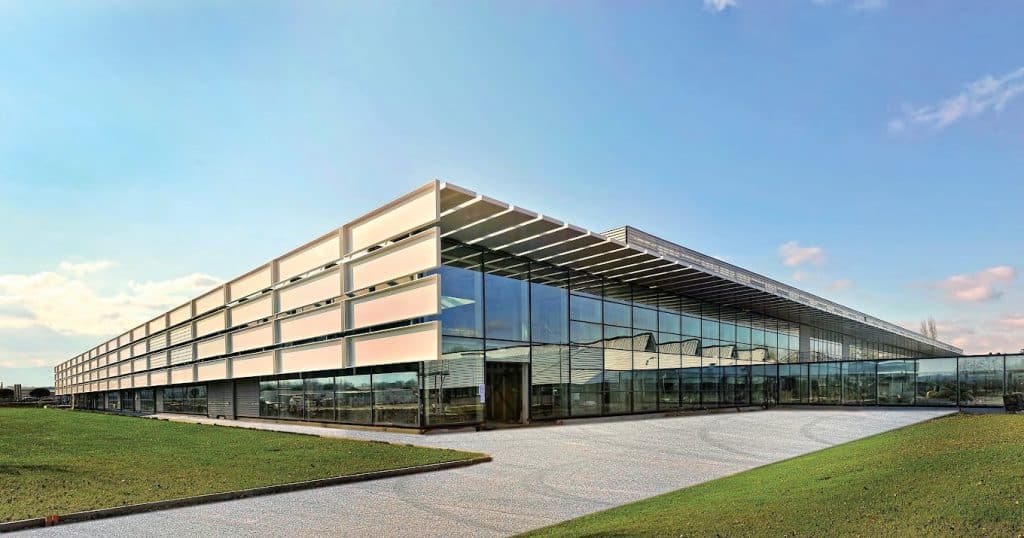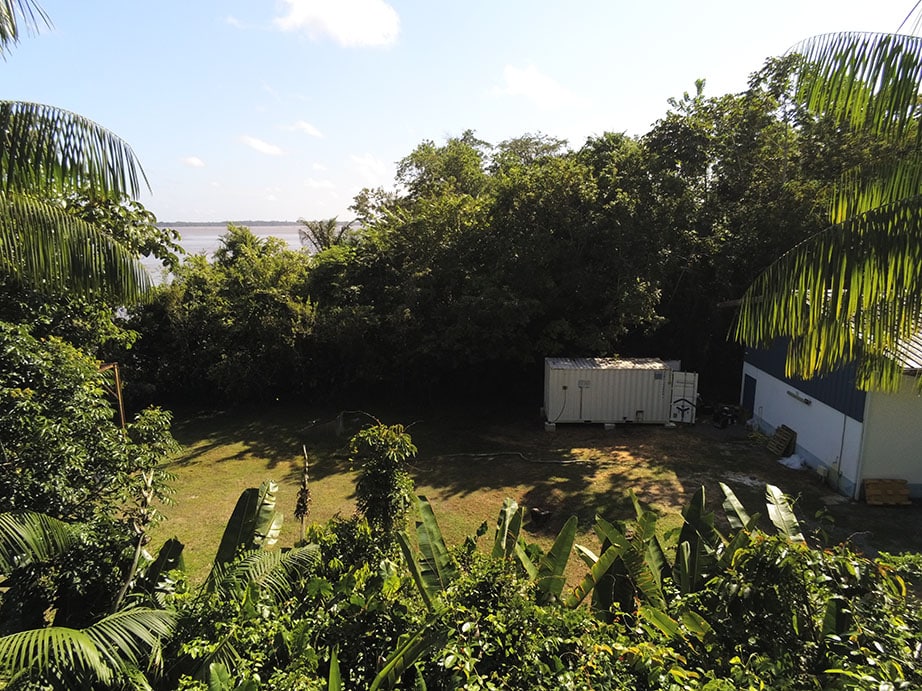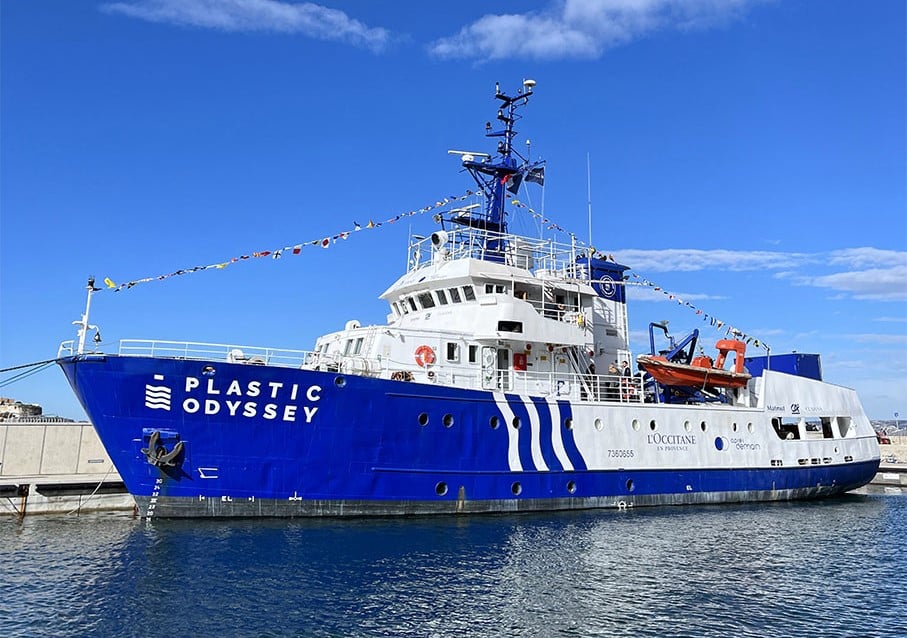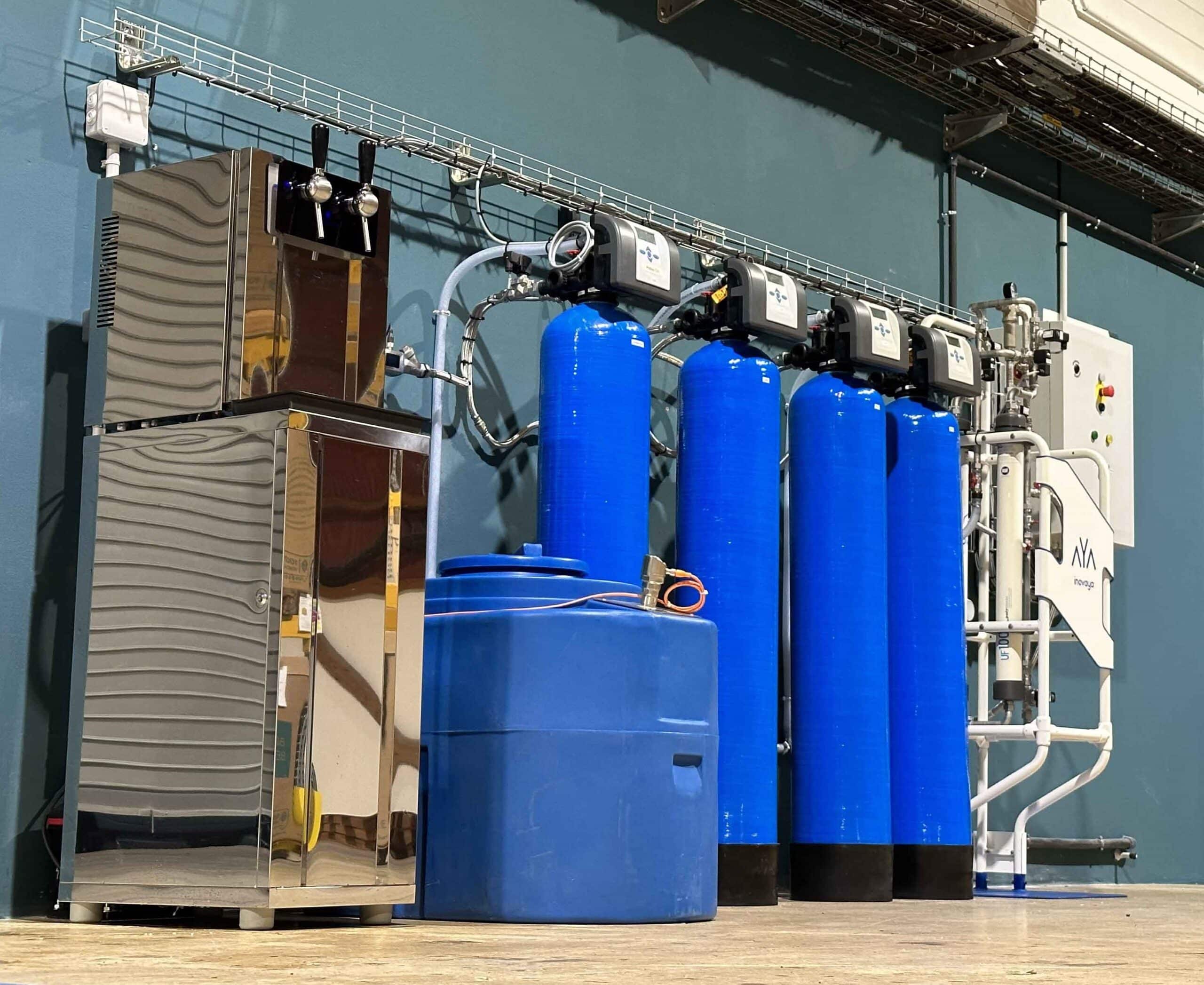
Securing water in the network with recYf
Discover our recYf® water safety unit, an adaptable, semi-standardized technology for securing the quality of your mains water at the point of use.
Ideal technology for local authorities
Our recYf® water safety unit is designed to clarify, disinfect and depollute water from a degraded network. It treats water to eliminate contaminants such as PFAS, pesticides, chlordecones, endocrine disruptors, etc.
Adaptable to existing systems and complementary to treatment plants, the recYf® is an ideal solution to meet the needs of local authorities and establishments open to the public.
Available in various versions (skid-mounted, containerized, with integrated fountain), it has a production capacity of up to 1m3/h (i.e., for a consumption of 500 to 40,000 people, depending on usage).
For efficient and sustainable efficient and sustainable
Equipped with a succession of technological bricks and controlled by a PLC that manages the production and backwashing phases, the recYf® guarantees clarified and disinfected water, captures dissolved metals (aluminum, iron, etc.) and absorbs micropollutants (such as chlordecone). As an option, a remineralization technology brick can be added, depending on the input water and the desired output quality.
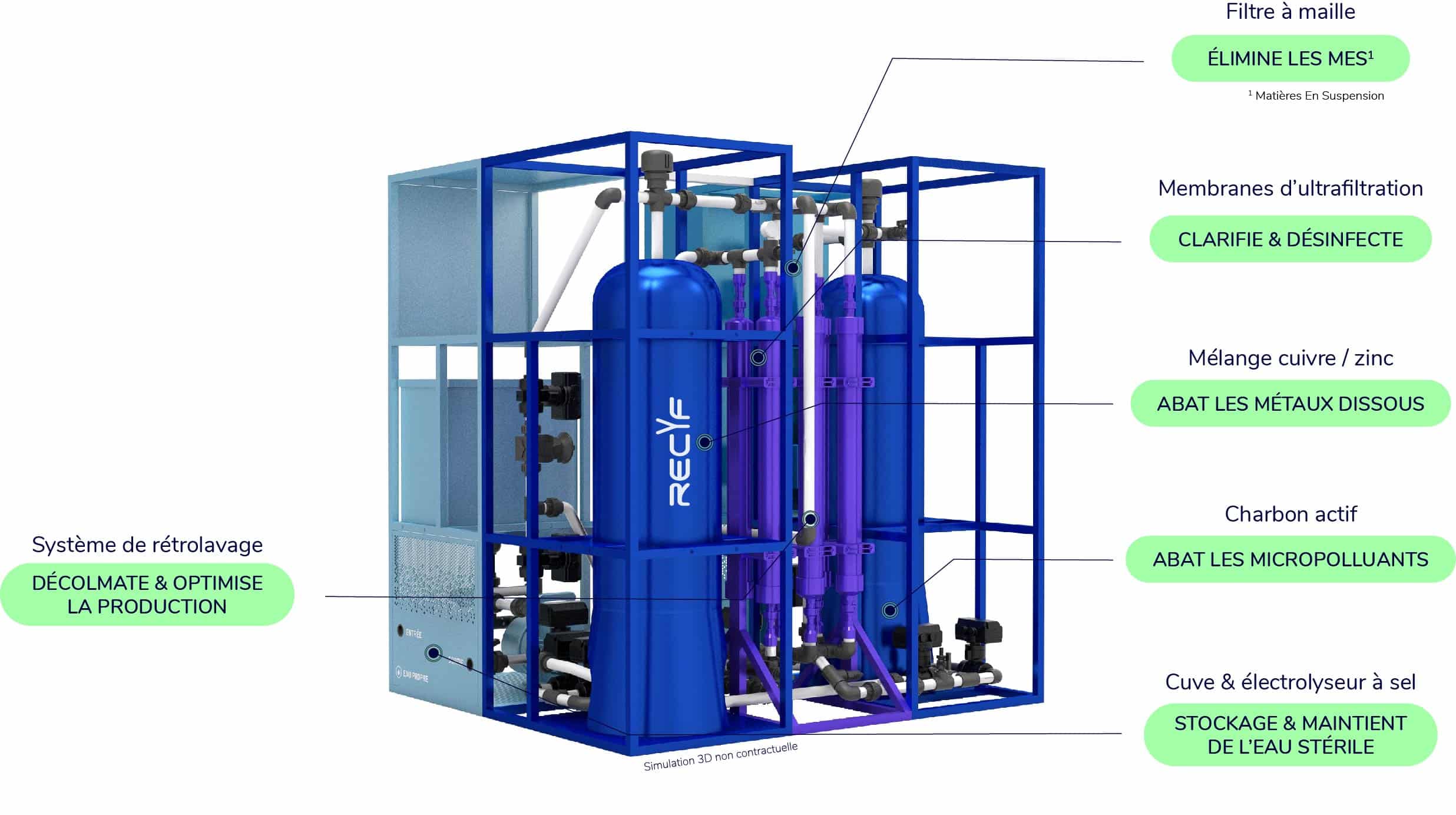
A daily impact
Adopting our recYf® safety unit not only means preserving water resources by using a robust treatment solution, it also means committing to a virtuous circle with positive social and environmental impacts.
About usDiscover our latest projects around the world
We work closely with our customers to bring high value-added projects to life, with the aim of making water management more responsible and access to the resource more evenly distributed.
Questions frequently asked questions
Filter end-of-life treatment is managed either by a recycling or regeneration process set up by the manufacturer (e.g. activated carbon), or by the collection and treatment of used filters by a specialist company.
Vegetable activated carbon is extracted from coconut shells and mainly adsorbs organic micropollutants such as pesticides, herbicides, fungicides, medicines, endocrine disruptors (including PAFS, estrogens, etc.) and also removes chlorine from water. While mineral activated carbon will also adsorb some organic micropollutants, it specifically targets chlordecone.
The prerequisites for installing a recYf ® are as follows:
- Space required ranges from 3 to 10m² (depending on the shape chosen: skid-mounted, 10-foot container, etc.).
- Be close to an electrical outlet
- Have a connection to the drinking water network (EDCH: Eaux Destinées à la Consommation Humaine - water intended for human consumption) and a discharge system
- Maintain a minimum pressure of 2 bar
Yes, the recYf® has been developed to meet the need for access to safe water in isolated areas. Its containerized form makes it easy to transport and move around. We respond to calls from international humanitarian NGOs, so check out our latest projects to find out more.
Yes, the recYf® can be adapted to different climates, as we offer the option of tropicalizing the unit (humidity-resistant materials, integrated air-conditioning system, etc.).
To find out more, discover our latest projects.
